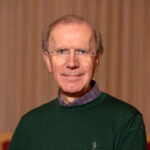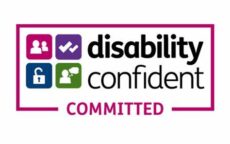Music Technology
Music Technology is a fast-growing area within the School and we are fortunate to be able to offer our Music Technology students the use of our first-rate studio facilities:
- Two purpose-built Recording Studios with separate recording and control rooms. Both feature a Logic Pro X based DAW system with a Slate Raven Core Station Dual touch screen control surface and 16 high quality pre-amps via Apogee Ensemble audio interfaces
- A third studio, also featuring a Logic Pro X based DAW system with a Slate Raven Core Station Dual touch screen surface acts as an additional mix suite / DI overdub room.
- Our main teaching room consists of a suite of Apple computers running Logic Pro X digital audio workstation software.
We also have:
- a selection of high-quality microphones from manufacturers such as AKG, Rode, Audio-Technica, Beyerdynamic and Oktava
- 2 Drum kits
- Electric Guitar, Electric Bass, Marshall and Ashdown amplifiers
- A selection of classic synthesisers
- A selection of outboard effects units
- A selection of vintage recording technologies
- A Roland RD300 Digital Piano
- A Yamaha grand piano in the main studio
The A Level Music Technology course guides students through the theoretical understanding, analysis and evaluation of production techniques from the early 1900s to modern day. You will also develop practical skills involving the production of audio recordings, and the creation of music through the use of sequencing techniques, audio manipulation, creative audio effects and sound design.
Some of the areas covered include:
- Sound waves – understanding frequency, amplitude and harmonics.
- Synthesis – understanding how different synthesis techniques work, and how to use them in practice.
- Microphones – different types, how they work, polar patterns, placement.
- Recording technology – History and development of recording and audio processing technologies from the 1900s to modern day, and their place within various popular music genres.
- Digital Audio Workstations – how to use them for sequencing, audio manipulation and sound creation – for recording work and composition.
- Audio Effects & Processing – Delay, Reverb, Chorus, Flange, EQ & Compression – what they sound like, how they work, and why we use them.
- Recording – how to use the recording studios to create and mix multi-track recordings.
Through these subject areas, Music Technology covers a range of S.T.E.A.M. (Science, Technology, Engineering, Art & Maths) principles such as Acoustics & Pyschoacoustics, computer skills, programming, problem solving, Composition and Analysing Data.
Who is the course for?
The A Level Music Technology course is an option for anyone in Y12/Y13.
As there is no GCSE in the subject, we can take on students who have no prior experience in the area however students should ideally have an interest in technology, sound recording and perhaps the more ‘popular’ styles of music. An affinity for computers and problem-solving is essential, and previous experience of creating music in a Digital Audio Workstation such as Logic Pro X, GarageBand, Cubase or Ableton would be of great benefit.
The course may also be of interest to our composition students who wish to experiment using technology within their composing work.
Career Paths
Studying Music Technology can be a starting point into a number of audio-based careers. Our alumni have gone on to further music technology related studies at institutes including Berklee School of Music, Liverpool Institute for Performing Arts, Salford University, Leeds Conservatoire and London College of Music. This has led to careers including:
- Post Production & Audio Mastering specialist
- Recording Engineer
- Dialogue and Audio Restoration
- Sound Design (Film + Video Games)
- Dialogue Editor (Film)
- Composer (Video Games)
- Award winning Electronic Music Artist
- Product Manager for audio plug-in manufacturers
- Record Producer
- Record Label Founder/Owner



